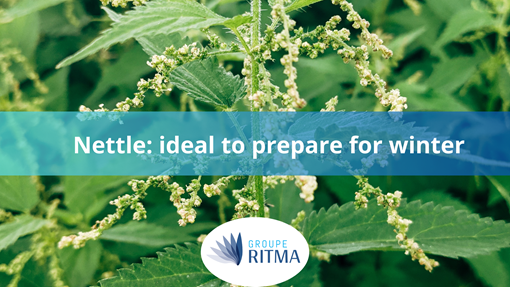
Chronicles
17 November 2023
The Benefits of Nettle as Winter Approaches

Nettle, a plant often considered an invasive weed, offers a multitude of benefits as winter approaches. This plant, scientifically known as Urtica dioica, has been used for medicinal, culinary and even textile purposes for centuries. As temperatures drop and days get shorter, the properties of nettle are proving particularly valuable to human health. In this text, we will explore in detail the multiple benefits of nettle and how it can help improve our well-being during the winter season.
1. Nutritional composition of nettle
Nettle is a rich source of essential nutrients. It contains a variety of vitamins, including vitamins A, C and K, as well as minerals such as iron, magnesium and calcium. These nutrients play a crucial role in maintaining general health and optimizing the immune system. In winter, when viruses and infections are more common, integrating nettle into the diet can be a natural way to strengthen the body's resistance.
Nettle is one of the most remineralizing plants. It contains vitamins A, B2, B5, B9, C and K, calcium, magnesium, potassium, manganese, zinc, iron, silicon.
On the eve of winter, the 3-week nettle cure provides you with all the minerals you need!
2. Strengthening the immune system
Nettle is recognized for its immune-stimulating properties. It activates the immune system by increasing the production of white blood cells, thus contributing to the body's defence against infections. As winter approaches, a time when colds and flu are more common, incorporating nettle into the diet can help prevent illness and reduce the severity of symptoms.
3. Anti-inflammatory properties
The anti-inflammatory properties of nettle make it a valuable ally for relieving joint and muscle pain, which is common during the winter months. People suffering from conditions such as arthritis can benefit from regular consumption of nettle, which can help reduce inflammation and ease associated pain.
4. Prevention of anemia
Thanks to its high iron content, nettle is beneficial for the prevention of anemia, a condition characterized by a lack of red blood cells or hemoglobin in the blood. In winter, when fatigue may be more pronounced due to lack of sunlight, nettle can help maintain adequate energy levels.
5. Respiratory support
Nettle has also been shown to be effective in supporting the respiratory tract. In case of cough, congestion or seasonal allergies, the expectorant properties of nettle can help clear the airways and relieve symptoms related to winter ailments.
6. Skin hydration
Winter is often associated with dry, dehydrated skin due to intense cold and wind. Using nettle as an ingredient in skin lotions or balms can help maintain adequate hydration and prevent season-related skin problems.
7. Stress management
Nettle leaves contain compounds such as serotonin and dopamine, which are linked to mood regulation. In winter, when a lack of natural light can affect morale, nettle can act as a natural tonic for the nervous system, helping to reduce stress and improve the state of mind.
8. Comforting Culinary Uses
In addition to its medicinal benefits, nettle can be incorporated into the diet in a delicious way. Nettle leaves can be used in soups, stir-fries, herbal teas and even smoothies. Their slightly herbaceous flavour adds a touch of vitality to winter dishes, while providing additional nutritional benefits.
Nettle emerges as a valuable ally as winter approaches, offering a diverse range of health benefits. Whether to strengthen the immune system, relieve joint pain, prevent anemia or simply provide nutritional support, nettle is positioned as a versatile and accessible resource. By incorporating this plant into our diet and personal care, we can embrace the benefits of nature to promote our overall well-being during the colder months of the year.